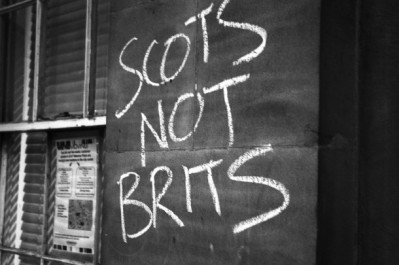With the referendum for Scottish independence approaching there has been undeniable anticipation as Scottish First Minister Alex Salmond desperately works on his campaign to persuade electorates to vote ‘yes’ in the upcoming poll.
Since the Scottish National Party (SNP) won the Scottish Parliament election in 2011, there has been a surge in pushing for independence. It is often thought that Scotland has hugely benefited from devolution from the central government as they continue on with a more generous welfare state, covering free medical prescriptions and university fees whereas the English public sector has suffered. However, the SNP claims that further autonomy would be even more advantageous.
The SNP claim that Scotland should own the revenue from North Sea oil and gas in a way which imitates the successful Norwegians. Advocates highlight that although Scotland generates 9.9% of the UK’s tax take, it only gets around 9.3% back causing many Scots to feel hard done by. The matter of currency is also disputed as Salmond affirmed that “It’s Scotland’s pound and we are keeping it,” following the rejection of currency union by Osborne.
A summary of the SNP’s pledges
- Voters would be £600 better off yearly
- Scotland would keep the pound and the Queen as head of the state
- A Scottish Broadcasting Service to co-commission, co-produce and work on programmes with the BBC
- Trident nuclear weapons would be removed by 2020, saving £100billion
- Bedroom tax abolishment
- Free childcare for all pre-school children
- Minimum wage to rise parallel to the cost of living
- Pensions would rise by about 2.5% per year
- Corporation tax would be cut by about 3% and air passenger duty would be slashed by 50%
- Scotland would have its own army with 15,000 full-time soldiers and 5000 reserves
Although the SNP believes that these advances outweigh the negatives, there are fears that independence will harm Scotland. The results of a June 2014 poll asking, ‘Do you think Scotland would be better or worse off independent from the UK?’ showed that only 27% of those surveyed believed that Scotland would be better off whilst 49% thought it would suffer.
Whilst the SNP believes that restructuring the system of oil and tax revenues will be beneficial they fail to compare the UK’s profits with Norway’s, leading to inaccurate predictions. Furthermore, the desperate need to keep the pound has only arisen recently due to the EU ruling Scotland out of getting the euro and the realisation of the volatility behind a new currency.
Major companies are implying that they do not support the independence as it would have a negative impact on their finances. The Royal Bank of Scotland and Lloyds, both based in Edinburgh, are particularly hesitant following the 2008 economic crisis with RBS stating, “Uncertainties resulting from an affirmative vote … would be likely to significantly impact the group’s credit ratings and could also impact the fiscal, monetary, legal and regulatory landscape to which the group is subject.”
In the days leading up to the ballot, the anti-independence campaign has gained much publicity with many celebrities backing campaigners that are ineligible to vote, known as Let’s Stay Together. Roughly 200 public figures including Sir Sean Connery and Professor Stephen Hawking have signed an open letter urging voters to choose ‘no’ whilst JK Rowling has donated £1million to the campaign, warning that it would be a “historically bad mistake”. She further added that “This separation will not be quick and clean: it will take microsurgery to disentangle three centuries of close interdependence, after which we will have to deal with three bitter neighbours”.

